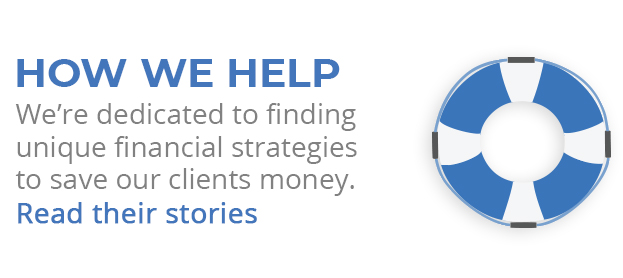
Even though 2016 may end up being a subpar year for stocks, you may realize short-term capital gains. What will you do about them? You could do what many savvy investors do – you could “cash in your losses” and practice “tax-loss harvesting.”
Selling losers to offset winners. Tax-loss harvesting means taking capital losses (you sell securities worth less than what you first paid for them) to offset the short-term capital gains you have amassed.
While this doesn’t get rid of your losses, it can mean immediate tax savings. It can also help you diversify your portfolio. It may even help you to position yourself for better long-term after-tax returns.
The tax-saving potential. Sure, you can use this technique to put your net gains at $0, but that’s just a start. Up to $3,000 of capital losses in excess of capital gains can be deducted annually, and any remaining capital losses above that can be carried forward to offset capital gains next year.
So, by taking a bunch of losses this year, and carrying over the excess losses into 2017, you can potentially shelter some (or maybe all) of your long-term and short-term capital gains next year. This gives you a chance to shelter winners you’ve held (even for less than a year) from being taxed at up to 39.6%.
The strategy in action. It is really quite simple. Step A is to pick out the losers in your portfolio. Step B is deciding which losers to sell. Step C is giving the green light to those transactions.
You must watch out for the IRS “wash-sale” rule, however. You can’t claim a loss on a security if you buy the same or “substantially identical” security within 30 days before or after the sale. (The window is actually 61 days wide in some instances.) In other words, you can’t just sell a security to rack up a capital loss and then quickly replace it.
But … you might be able to avoid the wash-sale rule by using an ETF to make a tax swap: an ETF for a stock or mutual fund, or perhaps an ETF for another ETF, if the ETFs are linked to different indices. Although these tax swaps are widely done, this is still something of a gray area, so consult a qualified tax professional first.
Watch the fine print on wash sales. The wash-sale rule applies to your entire taxable portfolio, not just one taxable account within it. So, as an example, if you sell individual holdings of stock in a company, you still must wait for the wash-sale window to close before you can purchase shares of that same firm for your IRA. Also, the wash-sale rule applies to multiple taxable accounts – worth remembering if you and your spouse file your taxes jointly.
The (minor) drawbacks. You may not wish to alter a carefully chosen portfolio to the degree that you must for tax-loss harvesting, especially if it has been built for the long term. Also, you could end up missing a rally in which an investment you have sold might take off.
You can only practice tax-loss harvesting in taxable accounts; tax-advantaged accounts are ineligible for this strategy. Transaction costs do add up, so think about those costs versus the potential savings before you begin – or alternately, harvest losses within a fee-based account.
Not just a year-end tactic … also a year-round strategy. Some investors harvest losses throughout the year, not just in December. You may want to ask the financial professional you know and trust how you can harvest losses this holiday season and beyond.

About the Independent Financial Advisor
Robert Pagliarini, PhD, CFP®, EA has helped clients across the United States manage, grow, and preserve their wealth for the past 25 years. His goal is to provide comprehensive financial, investment, and tax advice in a way that was honest and ethical. In addition, he is a CFP® Board Ambassador, one of only 50 in the country, and a real fiduciary. In his spare time, he writes personal finance books, finance articles for Forbes and develops email and video financial courses to help educate others. With decades of experience as a financial advisor, the media often calls on him for his expertise. Contact Robert today to learn more about his financial planning services.










